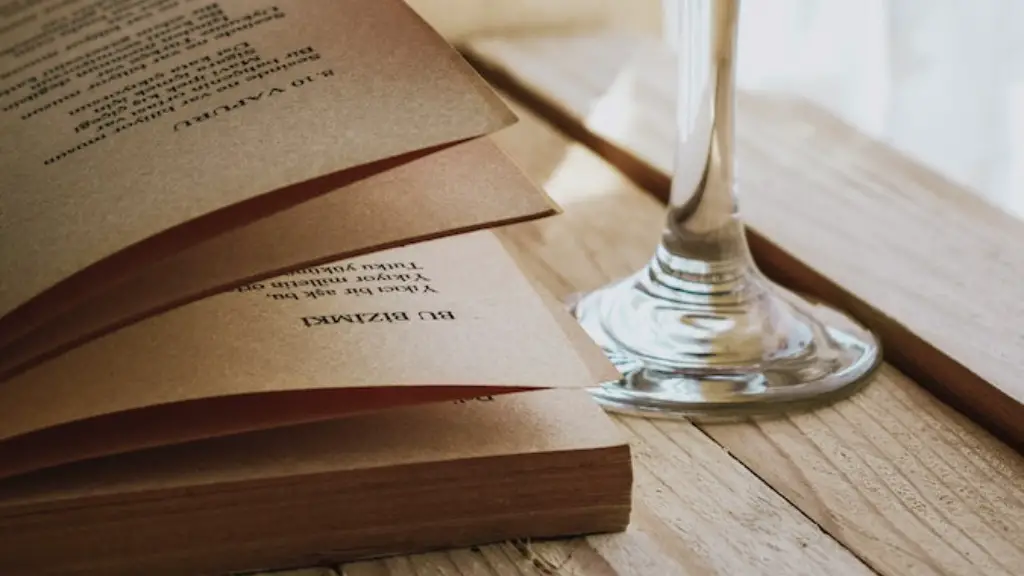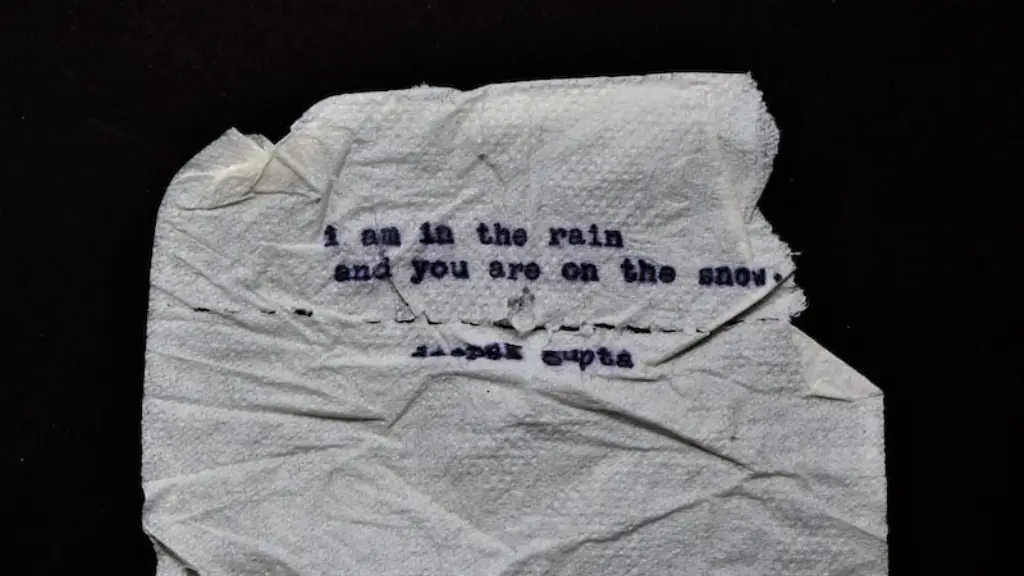Defining Prose and Poetry
In order to effectively teach prose and poetry, it’s important to understand the difference between them. Prose is language that follows regular grammar and syntax rules. Writing in prose is typically done for educational, professional, or journalistic purposes. Meanwhile, poetry is a form of writing that traditionally uses meter, imagery, and non-conventional syntax to express ideas or feelings. Poetry is often associated with a more creative purpose.
Establishing An Environment Favorable To Learning
The atmosphere of the classroom or learning environment should be one that fosters creativity and encourages students to take risks. An effort should be made to create an atmosphere of safety and autonomy; one where the students feel comfortable sharing their thoughts. This can be achieved by using learning activities that are immersive and engaging, as well as praising students for their contributions.
Lesson Planning
When it comes to teaching prose or poetry, a well-crafted lesson plan is essential. The first step to creating a successful lesson plan is to determine the subject matter you would like to cover. Make sure to tailor the content of the lesson to the audience and the specifics of the setting. Depending on the level of your students and the time you have available, you can opt for more guided assignments or more free-form activities for a hands-on approach. However, the key is to make sure every lesson is engaging and interactive.
Presentation Of The Material
When it comes to teaching prose and poetry, it’s important to present the material in an interesting and engaging way. Use analogies, stories, and anecdotes to pique the interest of your students. Visual aids, such as images and videos, can also be used to present material in a more user-friendly way. It’s also important to explain the purpose of any worksheets or reading passages, in order to ensure that students complete the assignments seriously.
Options For Assessment
In order to ensure that students have successfully absorbed the material, assessment of some kind should be incorporated into your lessons. This could be in the form of a quiz or a writing exercise. Essay questions or open-ended questions can be used to deepen student’s understanding of the material. Regular feedback should also be given throughout the lesson, making sure that all students have the same level of comprehension.
Provide Structured Writing Opportunities
Writing is an effective way for students to learn a new material. Therefore, providing structured writing opportunities is an important part of teaching prose and poetry. Compose some prose and poetry writing assignments for your students to complete and provide a rubric for them to follow. Encourage students to brainstorm and share ideas with their peers and give constructive feedback on their work.
Connecting Theory and Practice
The best way to understand the theoretical aspects of prose and poetry is through the practical application of the material. Have students read and analyze poetry or assign them a writing project related to prose. Ask them to find examples of different textual devices, or to recognize the difference between different types of metrics. This will help them understand why and how language is used to convey meaning.
Explore Visual Art and Music
When it comes to teaching poetry and prose, visual art and music can also be used as a way to understand the material. Have students listen to music and discuss how the lyrics relate to the prose and/or poetry. Or have them view a painting, mural, or sculpture and explain the elements of visual art. These activities will enhance their understanding of language and its power to express ideas and feelings.
Engagement with Different Genres of Writing
Introduce students to various genres of writing in order to expand their appreciation for both prose and poetry. Assign them pieces of fiction, drama, or non-fiction for them to compare and contrast. This will be beneficial for students by helping them recognize the common themes and characteristics of different types of writing.
Exploring Responses to Literature
A discussion with students of how they felt or responded to literature can be an effective way of teaching them. Ask them to recall the moment they read a piece of literature that made them pause and take a closer look. Have them share the memories that were evoked or the emotions they experienced. All these responses will open the students to an appreciation of the power of prose and poetry.
Critically Analyzing Works of Literature
It’s important to teach your students to critically analyze literature in order to further their understanding of language and its potential. Ask them to identify the literary techniques used in works of prose and poetry, such as literary devices, structure, and syntax. Encourage them to explain the way the author used these elements to create the desired effect.
Exploring Creative Writing
Teaching prose and poetry should not be limited to the study of literary works. Creative writing should also be explored, in order to help students develop their own voices. Have them use the techniques they learned in their own writing projects, while also encouraging them to experiment with different styles and genres. This will broaden their understanding of creative writing and the potential of language.
Exploring The Art of Performance
Performance art can also be used as a way of teaching prose and poetry. Have students explore different ways of expressing themselves through performance, such as through spoken word or improvisational theatre. This can further reinforce the meaning of words, allowing for a deeper understanding of the material.
Cultivating A Lifelong Appreciation for Language
In order for students to have a lasting appreciation for prose and poetry, the learning process should be encouraged to be ongoing. Embrace the idea that learning never truly ends, and the education of a poet or prose writer is ongoing. Introduce students to different examples of literature, continuing to emphasize the potential of language to evoke emotion and make an impact.



